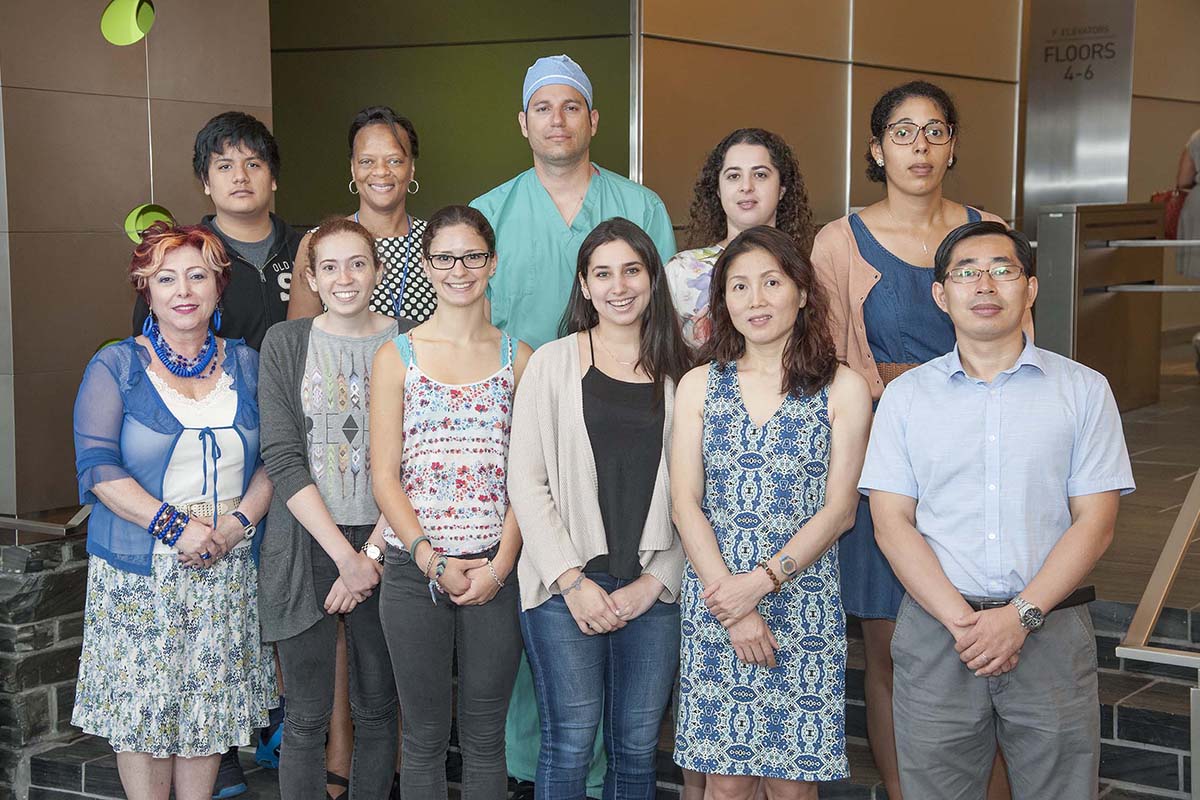The Adriana Haimovitz-Friedman Lab
Overview

The focus of my laboratory is to understand how SDRT can initiate an innate response in the local tumor and also contribute to initiation of a response in distant tumors (Abscopal/Adscopal like effects).
In addition, we use combination of SDRT and chemotherapeutic drugs with short acting anti-angiogenic agents, which result in improved tumor response with less overall toxicity.

Publications
Wang F, Li H, Markovsky E, Glass R, de Stanchina E, Powell SN, Schwartz GK, Haimovitz-Friedman A. Pazopanib radio-sensitization of human sarcoma tumors. Oncotarget. 2018 Feb 6;9(10):9311. doi: 10.18632/oncotarget.24281. eCollection 2018 Feb 6.
van Hell AJ, Haimovitz-Friedman A, Fuks Z, Tap WD, Kolesnick R. Gemcitabine kills proliferating endothelial cells exclusively via acid sphingomyelinase activation. Cell Signal. 2017 Feb 24; 34:86-91. doi: 10.1016/j.cellsig.2017.02.021. [Epub ahead of print] PMID: 28238856. DOI: 10.1016/j.cellsig.2017.02.021
Mizrachi A, Shamay Y, Shah J, Brook S, Soong J, Rajasekhar VK, Humm JL, Healey JH, Powell SN, Baselga J, Heller DA, Haimovitz-Friedman A, Scaltriti M. Tumour-specific PI3K inhibition via nanoparticle-targeted delivery in head and neck squamous cell carcinoma. Nat Commun. 2017 Feb 13;8:14292. doi: 10.1038/ncomms14292. PMID: 28194032.
Jacobi J, Garcia-Barros M, Rao S, Rotolo JA, Thompson C, Mizrachi A, Manova K, Fuks Z, Kolesnick R, Haimovitz-Friedman A. Targeting acid sphingomyelinase with anti-angiogenic chemotherapy. Cell Signal. 2016 Oct 1. pii: S0898-6568(16)30236-4. doi: 10.1016/j.cellsig.2016.09.010. [Epub ahead of print] PMID: 27702691
Mizrachi A, Cotrim AP, Katabi N, Mitchel JB, Verheij M, Haimovitz-Friedman A. Radiation-induced microvascular injury as a mechanism of salivary gland hypofunction and potential target for radioprotectors. Radiat Res. 2016 Aug; 186(2):189-95. doi: 10.1667/RR14431.1. PMID: 27459704
People

Members












Achievements
- Our Laboratory was the first to discover that radiation can induced damage to the plasma membrane of the endothelial cells, which resulted in a paradigm shift in the treatments of radiation and introduced the Single high Dose Radiation therapy, SDRT, in the clinic, which results in cures for those tumors that are otherwise non-responders to conventional fractionated radiation therapy.
- We found the optimal timing to combine SDRT with anti-angiogenics and with chemotherapy.
- For both prostate and breast cancers, ATM down regulation can radiosensitize via a specific signal transduction pathway involving de novo ceramide generation.
- Radiation-induced acute blood-brain barrier disruption is mediated by the acid sphingomyelinase (ASMase) pathway, a major contribution to the radiation and brain drug delivery field.
- Mice suffering from sepsis can be rescued by protecting the microvasculature.
- Mice are protected from Radiation-induced gastrointestinal syndrome by protecting the microvasculature via inhibition of the ASMase/Ceramide pathway.
Open Positions
To learn more about available postdoctoral opportunities, please visit our Career Center
Get in Touch
-
Office Phone
-
Research Team Phone